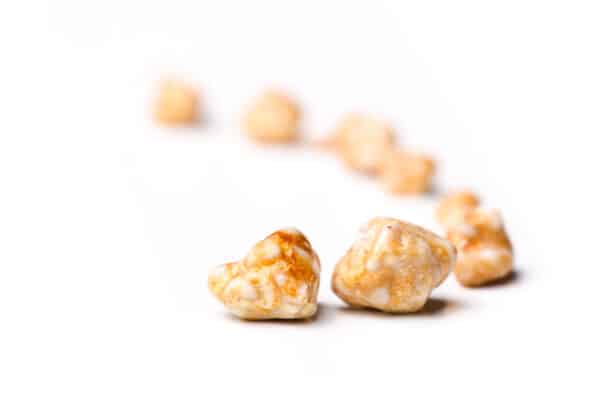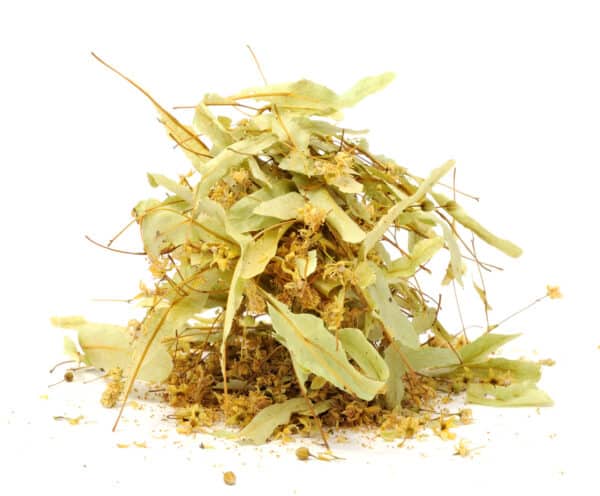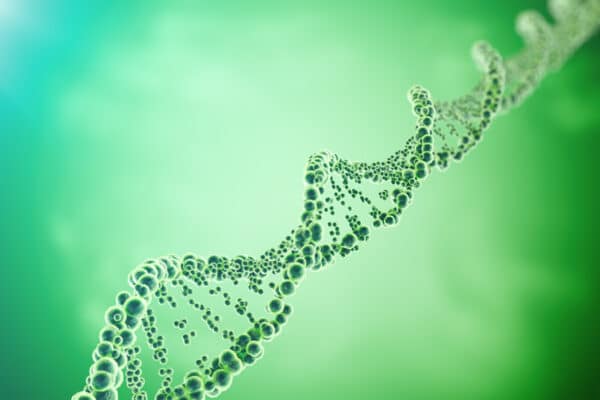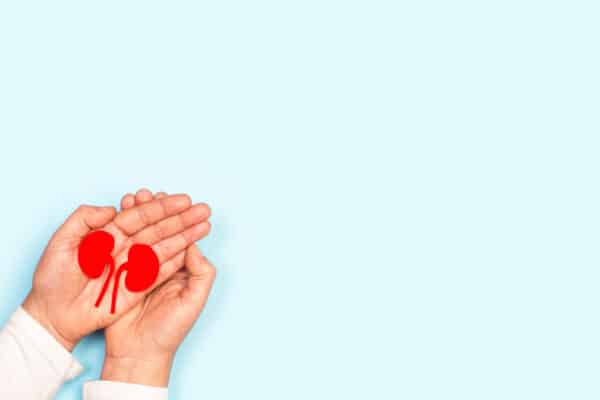
Natural Therapies To Treat Kidney Stones

This article follows on from my last post about Kidney stones. If you haven’t read the previous post I suggest you read that one first.
Diet
Dietary changes will depend upon the type of stone that you have. This is why knowing this information from your healthcare provider is important.
Calcium Stones
If a calcium build-up caused the stone, avoid oxalate foods and work with a practitioner to improve your microbiome. You can find more information about following a lower oxalate diet in some of our previous articles.
Animal Protein Eating
A lot of animal protein can cause changes in your urine, possibly leading to stone formation. These changes include more acidic urine, increased release of calcium, oxalate, and uric acid, and reduced citrate release. So, it’s a good idea to limit how much animal protein you eat, particularly red meat. Avoid diets that encourage high protein intake, like the Atkins diet, as they can cause these undesirable changes in your urine. The suggested daily protein intake is 1 gram per kilogram of body weight (where 1 kilogram equals 2.2 pounds).
Salt (sodium)
Overeating salt can also cause negative changes in your urine if you’re prone to stones. These changes include an increase in the release of substances like calcium and cystine, and a decrease in citrate release. It’s recommended that adults limit their salt intake to 2 grams per day.
Fluids
Drinking plenty of fluids is an easy and safe way to lower the chance of substances in your urine forming into stones. Regular tap water is a great choice for this. However, other drinks can also work. For instance, citrus juices and certain types of mineral water contain citric acid, a substance that prevents the formation of stone-causing substances.
The aim for adults is to drink enough fluids to produce 2 to 3 liters of urine per day. Typically, drinking 8 – 10 ounces of water every hour while you’re awake should help you reach this goal. Another way to tell if you’re drinking enough is by the colour of your urine – it should be almost as clear as water.
Lemon Juice
Fresh lemon juice can be beneficial in treating kidney stones due to its citrate content. This substance, found in citrus fruits, assists in dissolving calcium stones and also prevents them from growing larger. Simply put, lemon juice can make passing kidney stones easier and decrease the chances of developing them in the first place. This approach is particularly effective when dealing with calcium stones.
Caffeine Intake
A high intake of caffeine and coffee has also been linked to stone formation. During a flare up and if you are prone to kidney stones, avoiding caffeine intake is useful.
https://www.liebertpub.com/doi/pdf/10.1089/9780913113462.227?download=true
Pomegranate Juice
Pomegranate has often been used to manage issues like ulcers and diarrhea, and it might also help with kidney stones. This is because pomegranate helps reduce levels of calcium oxalate and is packed with antioxidants.
Antioxidants are crucial in combating and reducing oxidative stress, which is associated with the formation of kidney stones.
Pomegranate juice has an antioxidant capacity of 2 to 3 times that of green tea or red wine. Furthermore, a 2011 review of data from the 1980s and ’90s revealed that adults who reported having had kidney stones had antioxidant levels in their blood serum that were 8% to 11% lower than usual.
Herbs
Golden Rod – Solidago virgaurea
Golden rod (Solidago virgaurea) is a herb with a long history of use with the bladder and urinary system and, more specifically, for inflammatory diseases of the urinary tract and kidneys, prevention and treatment of urinary calculi and kidney gravel and as an adjuvant in the treatment of bacterial infections of the urinary tract.
Golden rod also helps the kidneys from getting bogged down with bacterial and immune by-products that build up after an infection.
On that note, let’s look at the specific actions of golden rod that make it an excellent herb for preventing and treating kidney stones.

Antiseptic and antimicrobial
Inhibits microbial growth and expression to prevent struvite stone formation.
Anti-inflammatory
Reduces inflammation and local irritation. Not only does this reduce pain caused by kidney stones, infection and inflammation, but by improving barrier function, you also reduce the risk of recurrent infections.
Diuretic
Increases the volume of urine produced and eliminated from the body, which helps flush and move out small urinary and kidney calculi.
Analgesic
Reduces pain from irritation and inflammation of the urinary tract. Studies have shown that its pain-relieving properties are comparable to the anti-inflammatory diclofenac.
Astringent
Golden rod has astringent properties, which means it causes constriction or tightening of the mucous membranes of the urinary tract, which can help to prevent infections. It also provides a protective layer that helps to heal inflamed tissue and reduce bleeding.
Antispasmodic
Kidney stones can cause spasms of the bladder and kidneys, which can be hugely painful.
Evidence shows that Golden rod can help prevent stones from forming, and its diuretic properties may also help expel small stones. It has the added benefit of reducing inflammation and spasms of the bladder, so may also help reduce pain associated with kidney stones.
The therapeutic dose of golden rod is 2 to 2.6 grams a day.
https://pubmed.ncbi.nlm.nih.gov/15638071/
https://link.springer.com/article/10.1007/s10354-004-0118-4
https://www.ncbi.nlm.nih.gov/pmc/articles/PMC5877626/
Gokshura – Tribulus terrestris
Also known as Tribulus terrestris, Gokshura is a renowned aphrodisiac and nephroprotective agent commonly used in India and China to treat urinary tract disease. This plant is a member of the Caltrop family, and its name, Gokshura, is derived from two Sanskrit terms: ‘Go’, which means ‘cow’, and ‘Aakshura’, which translates to ‘hoof’. This name was inspired by the cow hoof-like appearance of Gokshura fruits.
Gokshura serves a myriad of medicinal purposes beyond addressing sexual concerns. It is essential in treating urinary ailments, gout, kidney issues, polycystic ovary syndrome (PCOS), and problems related to the prostate gland and heart diseases. Moreover, it assists in managing and treating weak muscle conditions, cognitive impairments, hair loss, headaches, menstrual issues, neurological disorders, rheumatic discomfort, obesity, stress, hemorrhoids, nocturnal enuresis, ocular complications, and libido loss in both genders.

The therapeutic actions of this herb include:
- Nephroprotective
- Diuretic
- Aphrodisiac
- Lithotriptic
- Antioxidant
- Antibacterial
- Antiinflammatory
- cytoprotective (provide protection to cells against harmful agents)
- protects against calcium oxalate-induced renal injury
- Hepatoprotective
Nephroprotective Role
Studies have shown that TT (Tribulus Terrestris) protects the kidneys from Hypertensive renal injury and can support healthy kidney function by reducing oxidative stress and cellular damage caused by chemical toxicity.
https://atm.amegroups.com/article/view/83346/html
Diuretic activity
TT is known to help your body get rid of extra water and salt due to certain substances found in large amounts in its fruits and seeds, including nitrates and oil.
A study conducted in 2014 used a water-based extract of TT made from its fruits and leaves on rats and parts of a Guinea pig’s intestine to see how it affected their bodies. They found that when they gave rats a large oral dose of this extract (5 g for each kg of the rat’s weight), they produced more urine than usual. This increase was even slightly more than when the rats were given furosemide, a commonly used diuretic.
The TT extract also made the rats’ smooth muscles – the muscles found in parts of the body like the intestines and the urinary tract – more toned. This, along with the fact that TT made the rats produce more urine, could help to push stones along the urinary tract.
Because TT helps the body get rid of extra water and salt, acting as a diuretic, it could help treat high blood pressure.
https://www.ncbi.nlm.nih.gov/pmc/articles/PMC3931200/
Antiurolithic activity (prevents stone formation)
TT fruits can help prevent the formation of kidney stones. Studies have shown that an alcohol-based extract of TT fruits helped prevent the build-up of material that forms stones in white rats. They put a glass bead in the rats to stimulate the stone formation and found that the more TT extract they gave to the rats, the less stone-forming material was deposited around the bead. This extract also helped reduce white blood cell count and the level of a waste product in the blood called urea, which can increase with kidney problems.
They tried to break down the extract further to see if any particular part was responsible for these effects, but the activity was reduced. In other words, the whole extract was better at preventing stone formation. It also improved other signs of health in the rats, and these improvements increased with larger doses of the extract.
They found a specific protein in TT that might help protect cells and prevent stone formation. Another study showed that TT extract could also stop the growth of a particular type of crystal that forms kidney stones and protect kidney cells from injury.
Other studies have found that TT can stop kidney stones from forming when certain chemicals, like sodium glycolate and ethylene glycol, stimulate stone formation. One of the ways it might do this is by blocking an enzyme that helps make oxalate, a chemical often involved in kidney stones. This enzyme, known as GOX, changes glycolate into glyoxylate and then into oxalate.
The parts of TT that do this are quercetin and kaempherol. They block GOX in different ways, which can help stop oxalate production and, therefore, the formation of stones.
https://pubmed.ncbi.nlm.nih.gov/7853865/
Antiinflammatory activity
The alcohol-based extract of TT can help to reduce inflammation. It does this by limiting the production of specific chemicals in certain cells, usually activated during inflammation. This includes chemicals such as COX-2 and iNOS, produced in larger quantities when cells are exposed to lipopolysaccharide, which can cause inflammation.
The extract also reduces the amount of harmful inflammation-causing substances, such as TNF-α and IL-4, in a type of immune cell called a macrophage. This suggests that TT extract can help with various conditions where inflammation is problematic.
Another extract of TT, made with methanol, also showed benefits in reducing inflammation. This was proven by observing a decrease in swelling in the paws of rats after they were exposed to carrageenan, a substance known to cause inflammation. This decrease in swelling happened more as the amount of TT extract given was increased.
https://www.ncbi.nlm.nih.gov/pmc/articles/PMC5877626/
The therapeutic dose of TT is 1-2 gms per day, often taken as a dry powder added to hot water and honey or in capsule form.
Gravel root – Eupatorium purpureum
Also known as Queen of the Meadow, it has a long history of use for helping to make passing stones easier. It also helps relieve kidney and genito-urinary tract pain. Native Americans widely used the plant. The Cherokee used the roots as a remedy for the kidneys and for rheumatism. It was also used as a partus preparator (to prepare the womb for labour) and to tone the uterus. The Chippewa used it when with a cold, inhaling the vapours from an infusion of the plant. The Potawatomi people used a poultice of the leaves for burns and the Navajo used the herb as an antidote for poison. Adopted by white settlers, it was also used for urinary infection, gravel and stones and as a diaphoretic to help break a fever.

Therapeutic Actions:
- Anti-inflammatory
- Anti-lithic
- Anti-rheumatic
- Diuretic
- Tonic
- Astringent
Anti-inflammatory
A compound called cistifolin found in gravel root helps fight inflammation. This compound worked in both lab tests and real-life scenarios.
Cistifolin also helps stop certain types of cells (called leucocytes or white blood cells) from sticking to each other and other tissues. In particular, it prevents a certain type of leucocyte (called a monocyte) from adhering to a protein called fibrinogen, and it does this more effectively with higher concentrations of cistifolin.
There are not a lot of scientific studies on the anti-lithic effects of Gravel root, apart from its long historic use.
The therapeutic dose of gravel root 2-4g dried root and rhizome one to three times daily Decoction: half to a teaspoon simmered in a mug-sized amount of water for 15-20 minutes. Half a cup per dose 3-8 ml per day 1:3 tincture
Hydrangea root – Hydrangea arborescens
This Native American shrub is one of the most effective urinary tract analgesics. It is indicated for genito-urinary tract pain and spasm. People have used hydrangea root for centuries to deal with bladder and prostate infections.
Scientists, however, believe that this plant shines when it comes to supporting kidney health and fighting inflammation. Early research indicates it might lower harmful blood urea nitrogen levels in the kidneys – this measures how well your body is getting rid of waste. In various animal studies, a potent compound called coumarin has been found in hydrangea root. This compound may halt the growth of inflammation-causing cells in the body. So, hydrangea root might offer a double benefit for those concerned about inflammation as they get older or looking for natural ways to combat kidney disease.

Therapeutic Actions:
- Diuretic
- Cathartic
- Tonic
- Anti-inflammatory
- Anti-lithic
- Anti-oxidant
Anti-lithic
A lithotriptic is something that helps keep calcium dissolved, and hydrangea’s ability to do this isn’t just limited to kidney stones. It can help with calcium build-ups, such as bone spurs anywhere in the body.
Hydrangea root pairs well with other substances that increase urine output, as well as with those that ease the pain associated with passing a stone.
https://www.stone-relief.com/pages/hydrangea-root
https://www.ijsr.net/archive/v8i12/ART20203147.pdf
Diuretic Actions:
Urinary Tract Infections
By promoting more urine flow, hydrangea root may help reduce bacteria in the urinary tract. It can also deliver other medicinal herbs directly to the infection site. It works effectively alongside other substances that increase urine output and antimicrobials to help eradicate the infection.
Benign prostatic hyperplasia (BPH)
Hydrangea root helps by increasing urine flow and reducing leftover urine in the bladder. It could potentially assist with nighttime urination issues if taken during the day. It synergizes well with other substances that boost urine production and specifically target BPH.
Prostatitis
Like its effects in BPH, hydrangea root helps by improving urine flow and decreasing residual urine in the bladder. It works effectively with other substances that increase urine production and antimicrobials to help eliminate the infection.
Anti-inflammatory
In addition to being a diuretic, it also has anti-inflammatory actions due to a cortisol-like effect. The adrenal glands, which sit atop the kidneys, produce cortisol to reduce inflammation and are involved in urinary function and fluid/mineral balance.
Hydrangea root is also rich in a compound called coumarin. Both coumarin and another compound found in the root, called skimmin, might be beneficial in lowering inflammation.
Research on animals suggests that skimmin and coumarin could dampen the impact of specific markers that trigger inflammation by:
- halting the production of nitric oxide (NO), a molecule involved in inflammation
- stopping the activation of interleukin 6 (IL-6), which are substances that initiate inflammation
- slowing down your body’s response to substances that cause inflammation
In addition, hydrangea root holds two more compounds, known as loganin and sweroside, which also have the ability to combat inflammation.
https://greatist.com/health/hydrangea-root#research
Therapeutic Dosege: Tea: ½ – 1 tsp. dried bark, 8 oz. cool water, steep 1 hour. Take 4 oz. TID Tincture (1:5): 2-3 ml TID
Nutrition
Fish oil
Some limited research has suggested that fish oil may protect against kidney stones. Omega-3 fatty acids in fish oil possess anti-inflammatory properties and may help reduce the risk of stone formation. Inflammation can contribute to the development of kidney stones by promoting the release of substances that promote stone formation. Omega-3 fatty acids may counteract this process, potentially reducing the risk of stone formation.
Additionally, fish oil has been found to increase urinary citrate levels. Citrate is a natural inhibitor of stone formation as it helps prevent the aggregation of crystals in the urine. By increasing urinary citrate levels, fish oil may help inhibit the formation of certain types of kidney stones.
Magnesium citrate
Magnesium citrate is a commonly used dietary supplement that combines magnesium with citric acid. It is known for its potential role in preventing kidney stone formation, particularly in individuals prone to certain types of kidney stones. Understanding how magnesium citrate works as a prophylaxis to kidney stone formation requires an overview of its effects on stone risk factors.
Citrate excretion:
Magnesium citrate increases urinary citrate levels, which can help inhibit the formation of kidney stones. Citrate binds to calcium in the urine, preventing calcium oxalate and calcium phosphate crystals from forming. By increasing urinary citrate excretion, magnesium citrate reduces the risk of stone formation.
Calcium oxalate crystallization:
High levels of oxalate in the urine can lead to the formation of calcium oxalate stones. Magnesium citrate has been found to decrease the saturation of calcium oxalate in the urine, inhibiting the crystallization process. It binds to oxalate in the intestines, reducing its absorption and subsequently decreasing its excretion in the urine.
Stone growth inhibition:
Magnesium can also directly inhibit the growth of calcium oxalate crystals. It interferes with crystal aggregation and adherence to the kidney tubules, reducing the likelihood of stone formation and growth.
Fluid balance and dilution:
Adequate fluid intake is crucial in preventing kidney stones. When taken with sufficient water, magnesium citrate helps maintain proper hydration and urinary volume. Sufficient urine volume is essential for flushing out stone-forming substances and preventing their concentration in the urine.
Magnesium citrate can work as a prophylaxis for kidney stone formation through various mechanisms. It increases urinary citrate levels, reduces calcium oxalate saturation, inhibits crystal growth, and promotes proper hydration.
https://pubmed.ncbi.nlm.nih.gov/9366314/
https://pubmed.ncbi.nlm.nih.gov/17509313/
So there you have it! Everything you ever wanted to know about how to prevent and manage kidney stones naturally. Remember, if you start any new natural herbal or nutritional remedy, check that it is safe to take with your health care provider. If you liked this article, please feel free to share it.
Share This Article
More articles by
Fiona Chin N.D.
LIKE WHAT YOU’VE READ?
Sign up for free updates delivered to your inbox. Join our community and get tips on health, wellness, nutrition, and more.
More From Our Blog
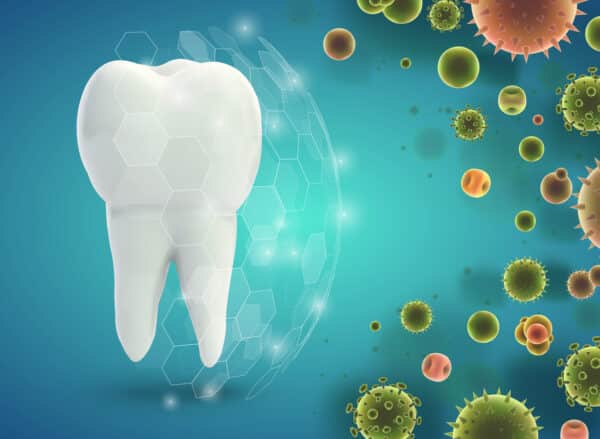
The Oral Microbiome & Chronic Kidney Disease
The oral microbiome plays an essential role in the incidence and development of

Natural Therapies In The Treatment of Polycystic Kidney Disease
Regarding dietary interventions in treating and managing PKD, the science is solid. The
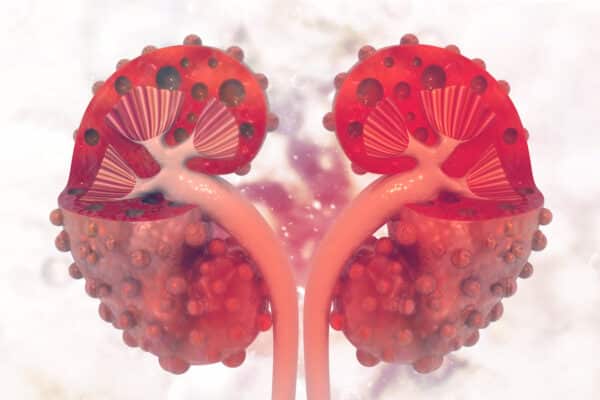
What Causes Cyst Formation In Polycystic Kidney Disease?
What is polycystic kidney disease? Polycystic kidney disease (PKD) is a prevalent genetic
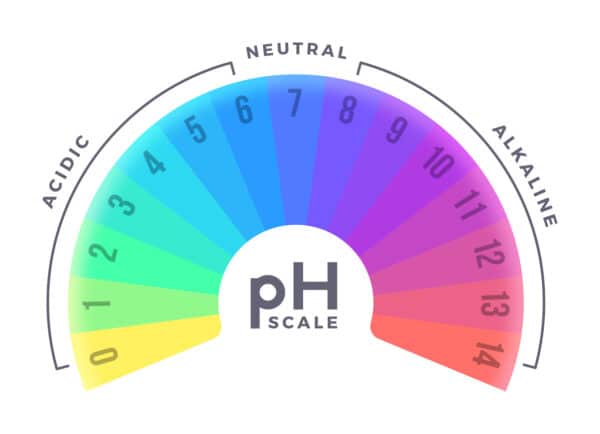
Bicarbonate Supplements? Is It The Best Way To Alkalize in Kidney Disease?
Throughout the ages, human diets have undergone a significant transformation, shifting from an
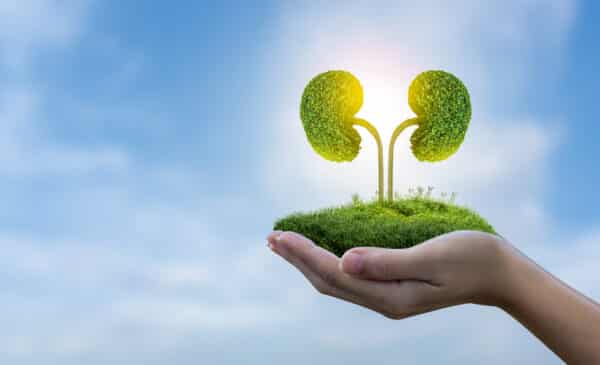
The Big Question… Can Kidney Disease Be Reversed?
Kidney disease can range from mild to severe, so the potential for reversal
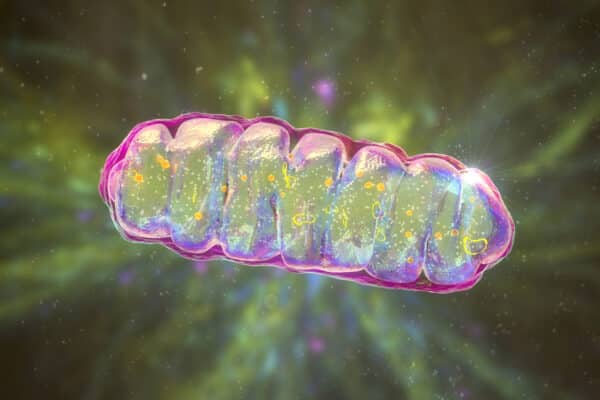
SS-31 Peptide and Kidney Disease
Kidney disease is a global health concern. The kidneys, especially the proximal tubules,


